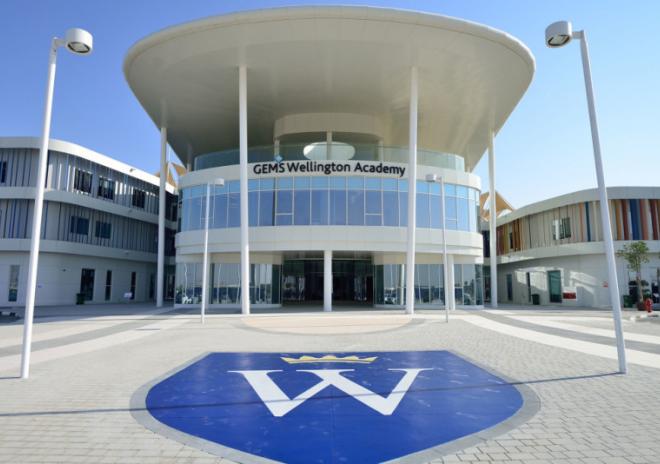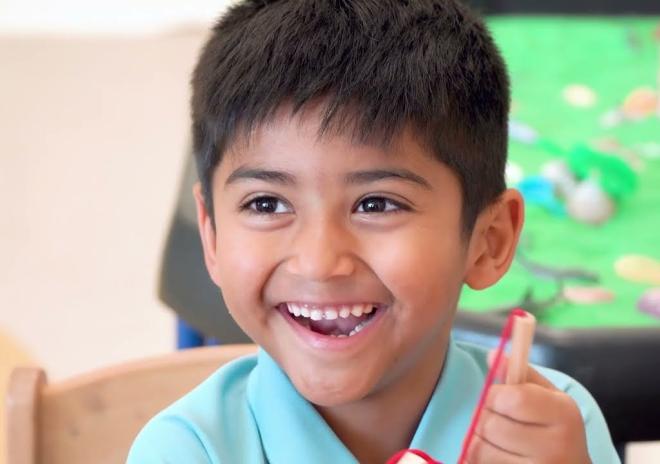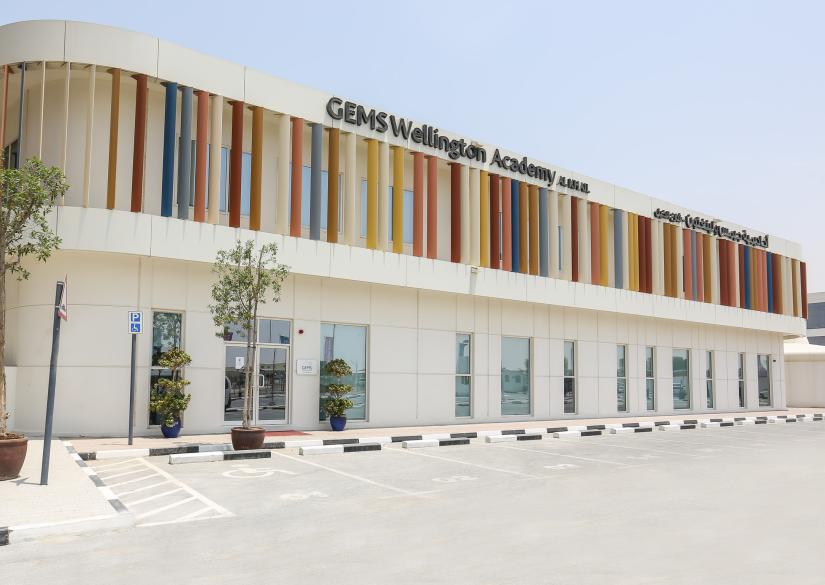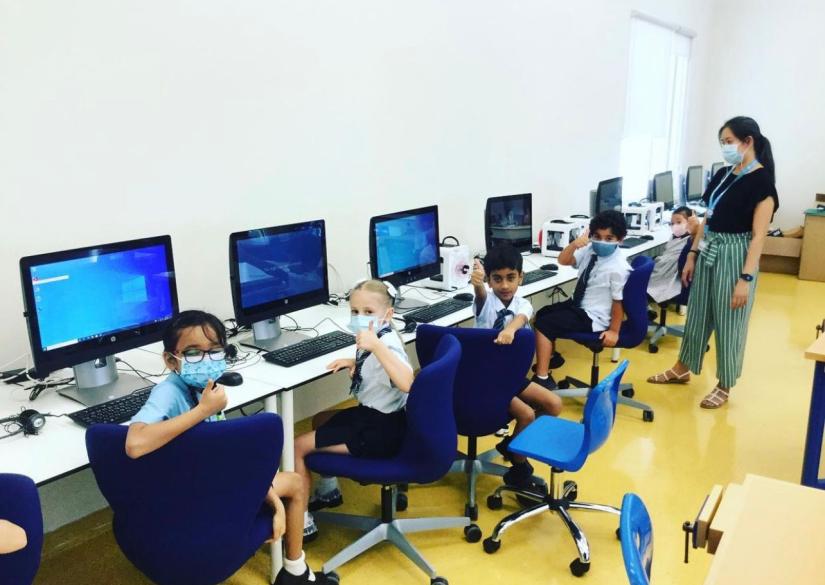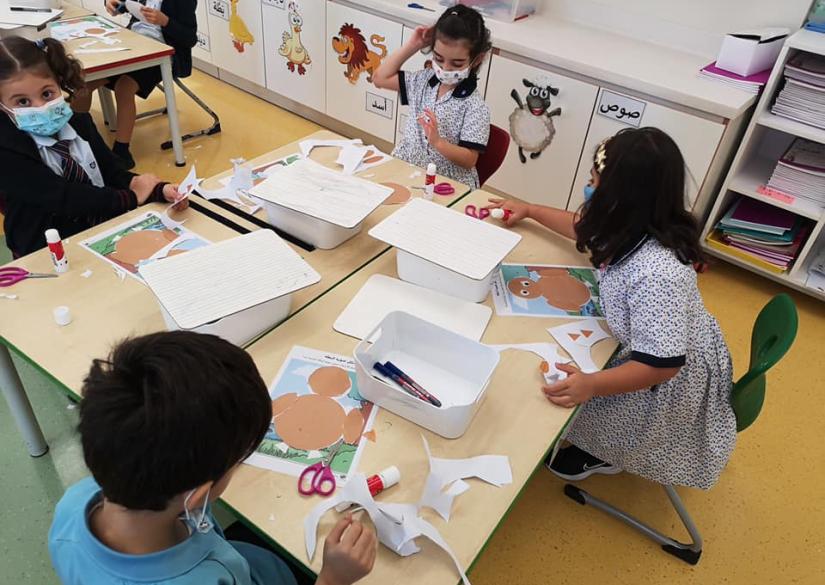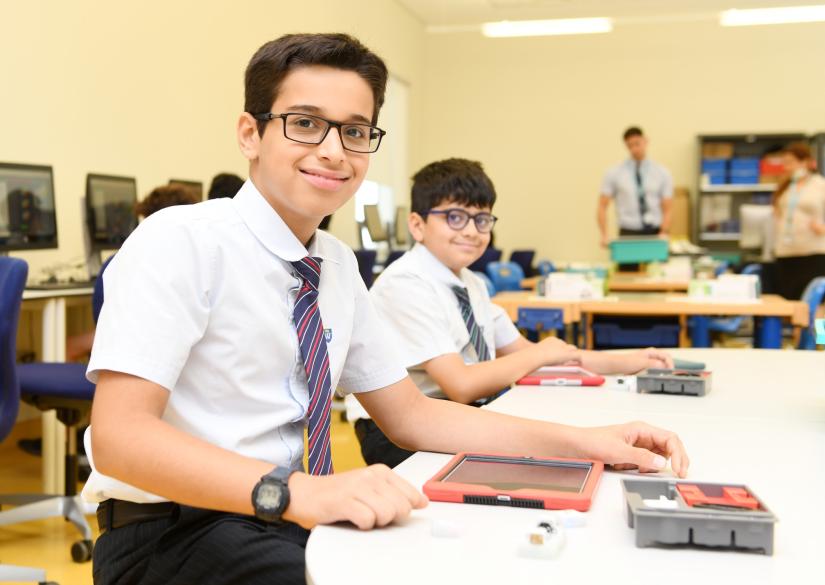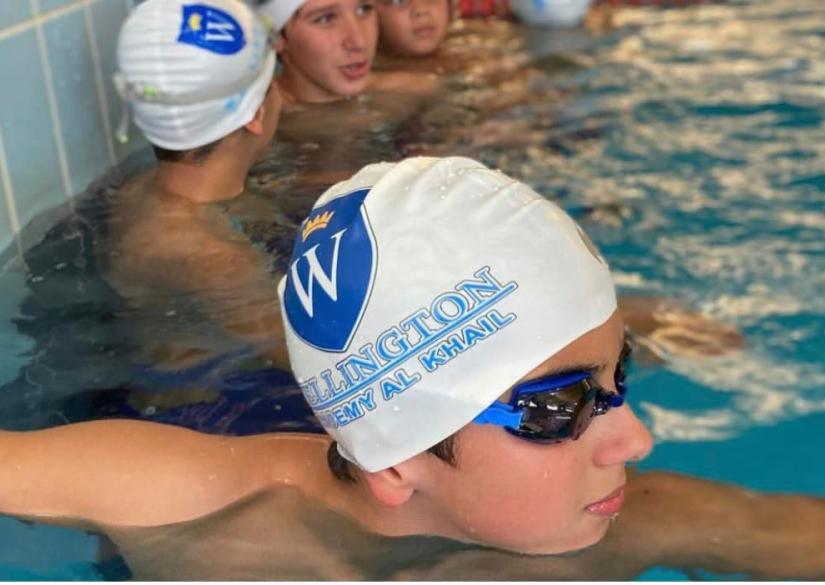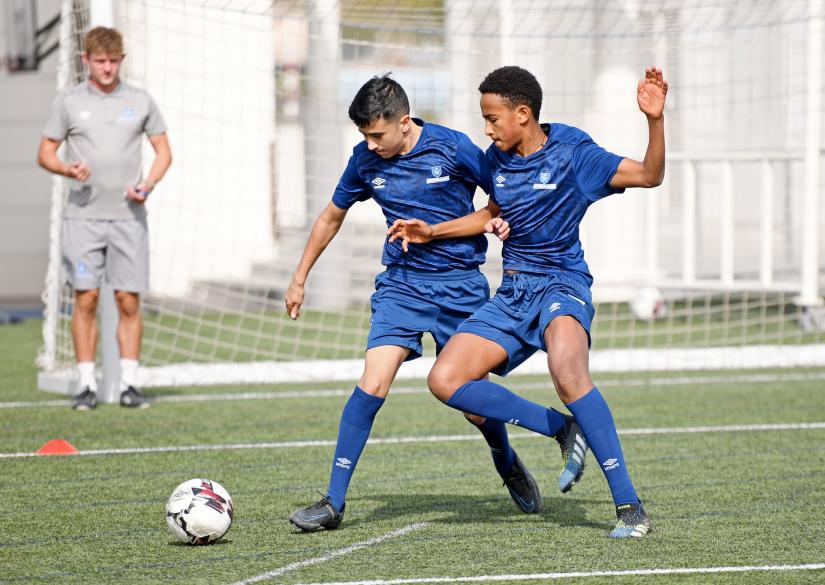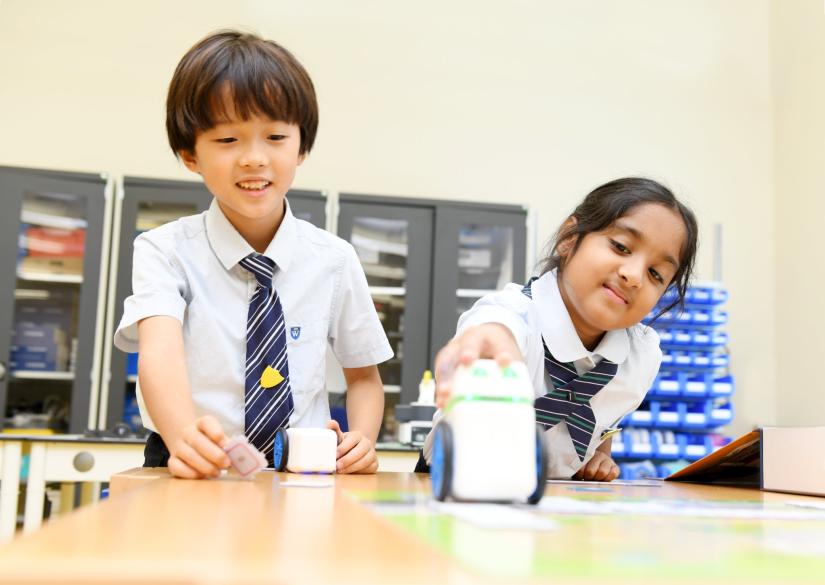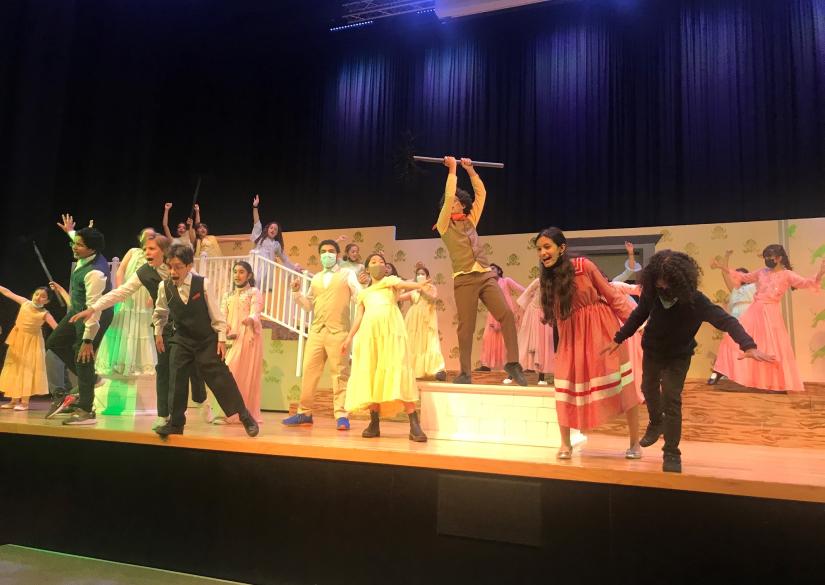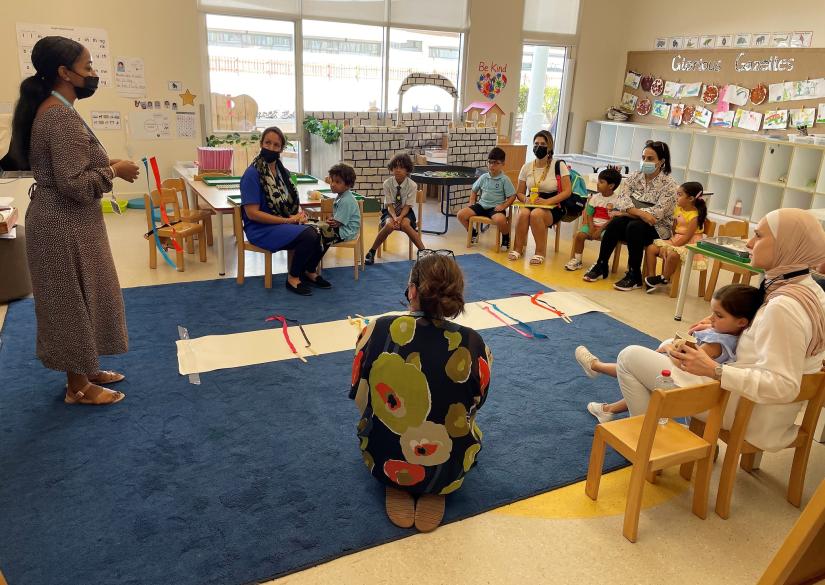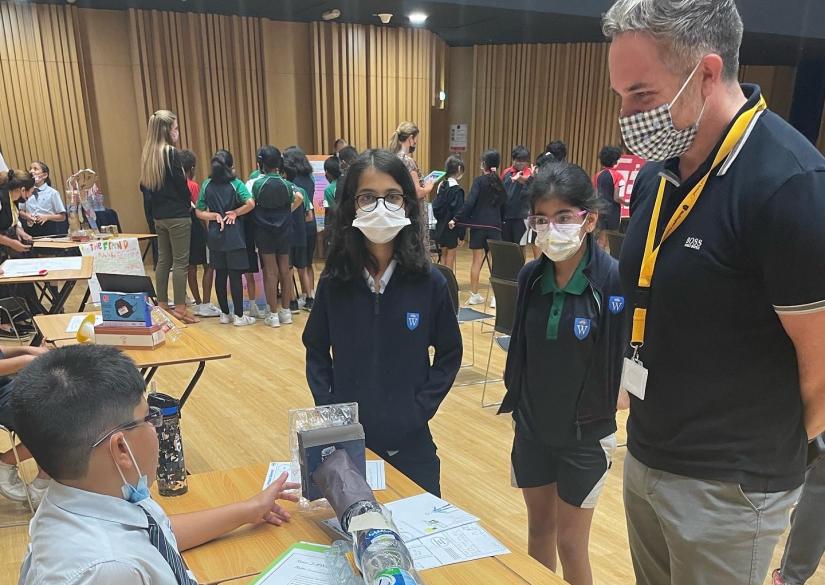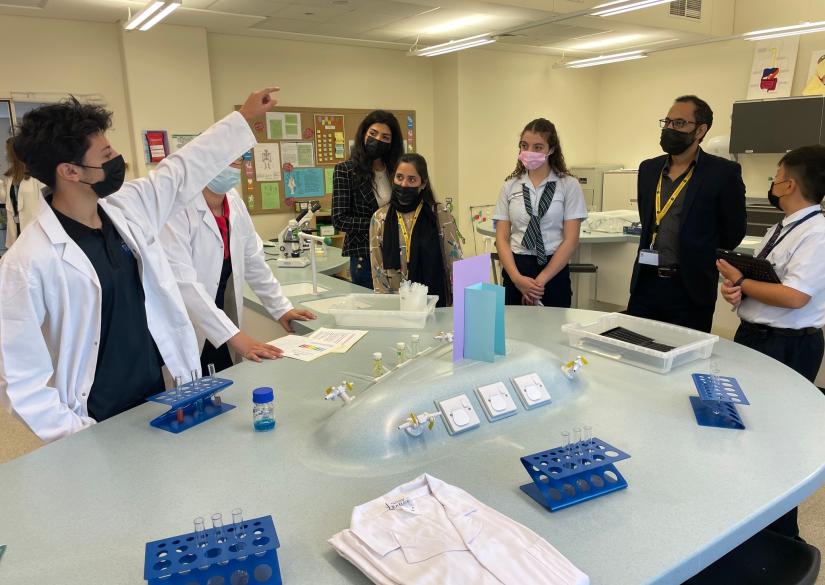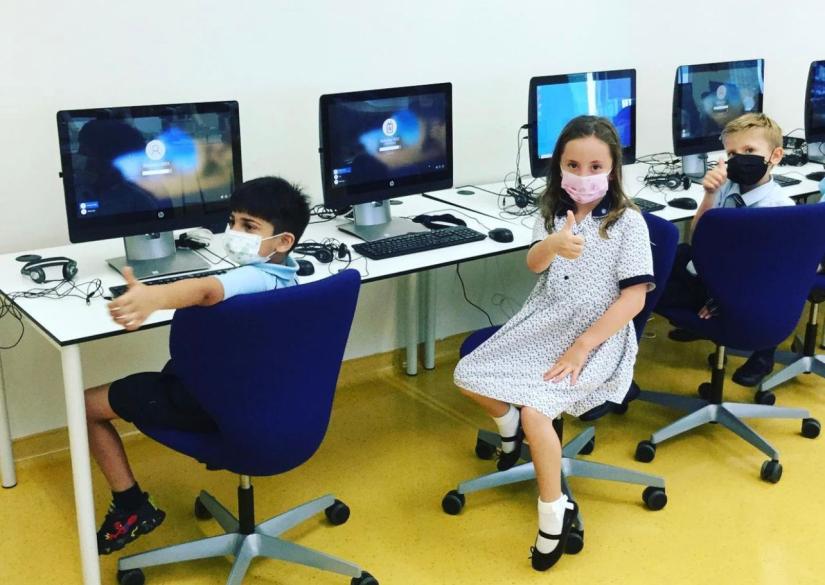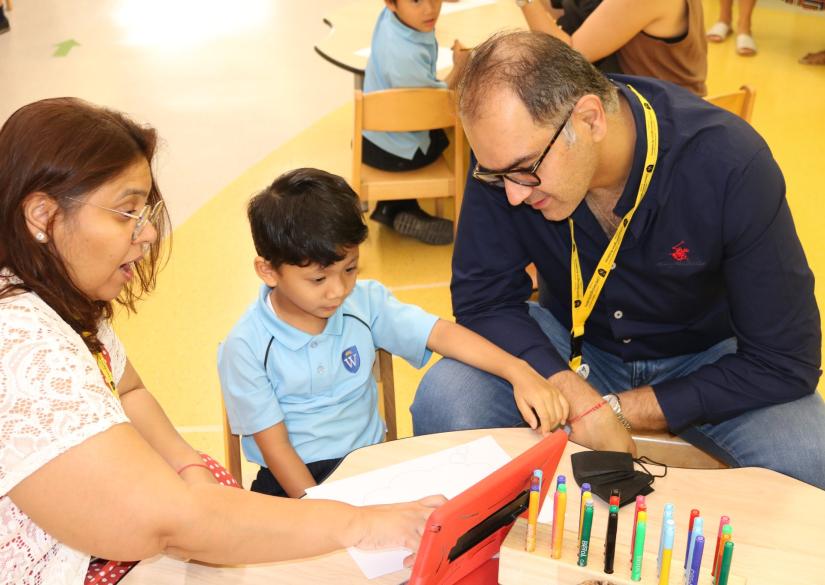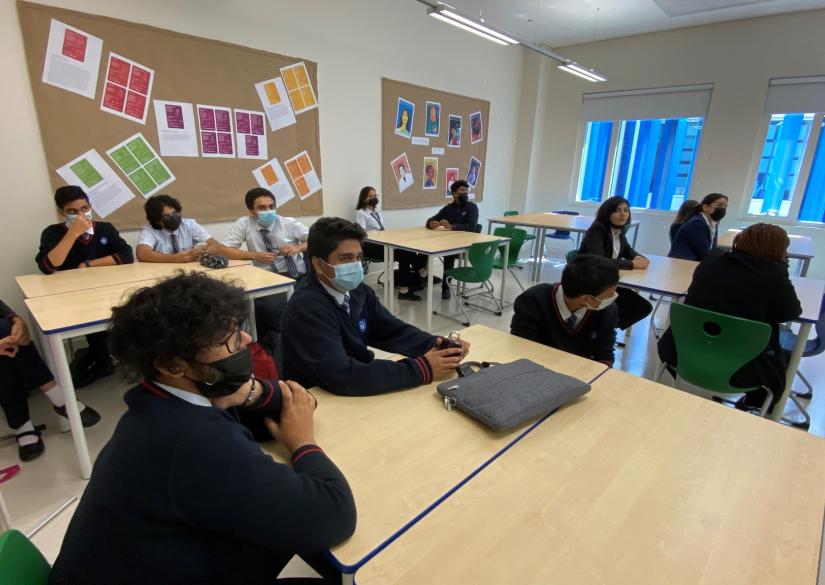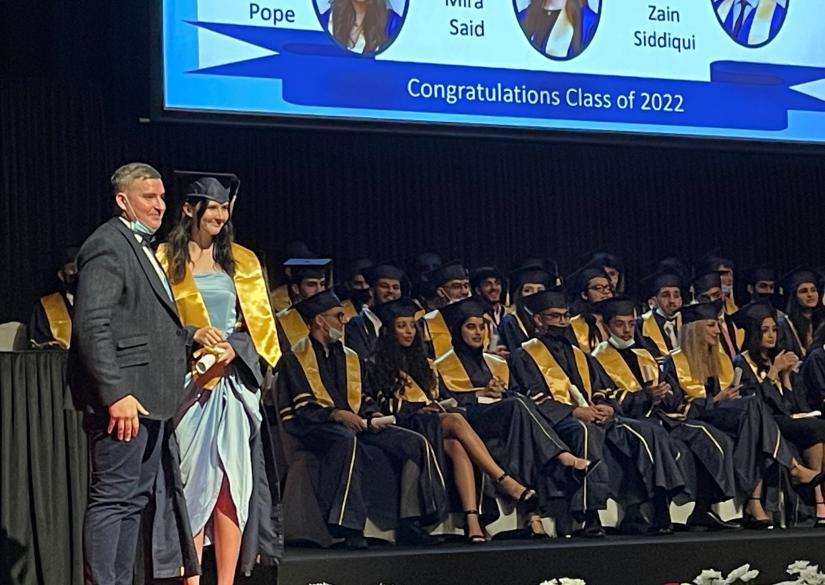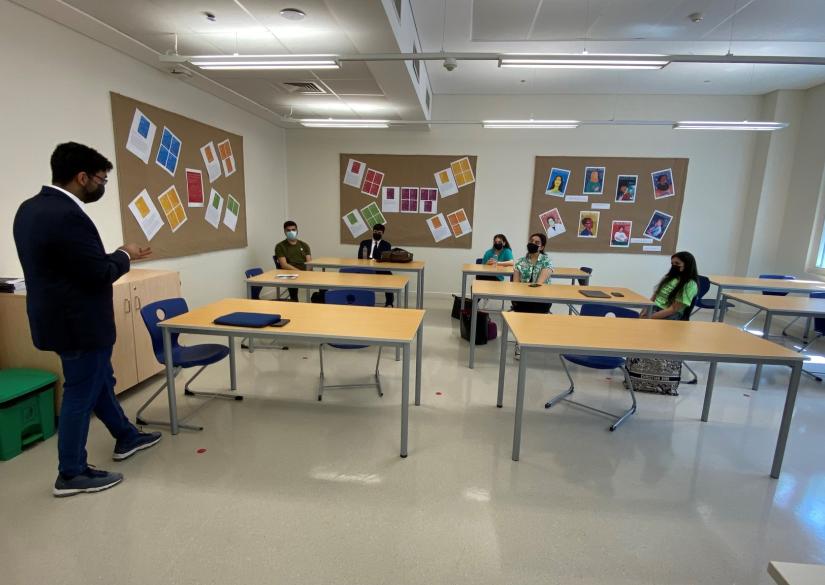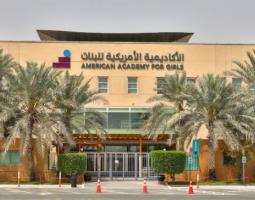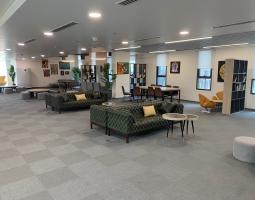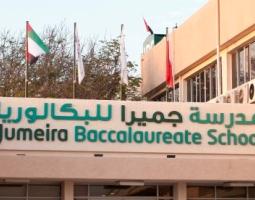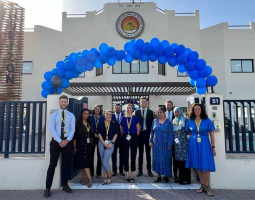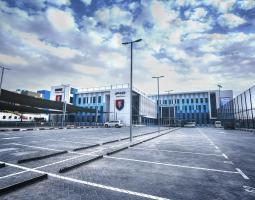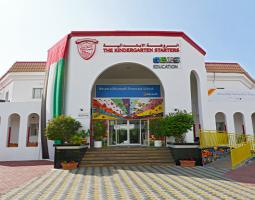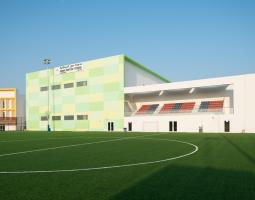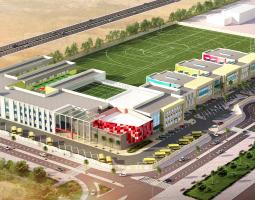Wellington Academy – Al Khail
Programs and prices, tuition fees in Wellington Academy – Al Khail
Early Years
- Age - from 3 years.
The program focuses on the development of the youngest pupils. Teachers conduct classes in the format of interactive games both in the classroom and in the fresh air, so children quickly adapt to the environment and do not lose interest in learning. Some lessons are held together with parents - so young students maintain a calm state within the walls of the school, spend time with their family and feel supported.
Children are encouraged to express their skills and interests in a variety of ways: by movement, drawing or dancing, by building and sculpting.
Foundation Stage
- Age – from 3 to 5 years
- The training period is 3 years.
During their studies at FS1 and FS2, children work towards early learning goals – some of them:
- Communication, language development,
- Physical development,
- Personal, social, emotional development,
- Literacy
- Mathematics
- Understanding the world,
- Art, design.
During the basic phase, a number of additional specialized lessons are offered: Arabic, Music, Drama and Physical Education, including swimming. In addition to developing specific knowledge and skills, specialized lessons play an important role in personal, social and emotional development at an early age.
Twice a week there are additional classes that develop extracurricular interests: gardening, cooking, yoga and much more.
Primary School
- Age – from 5 to 11 years
- The term of study is 6 years.
The primary school curriculum is divided into two key stages: Key Stage (first and second grades) and Key Stage 2 (third to sixth grades).
Core subjects are the basis for all other training and require tests every year. Among them:
- English language
Children develop skills in four areas: speaking, listening, reading and writing. Also included in the course is a deep study of phonetics.
- Mathematics
Many topics are studied: Form and Space, Measurement, Data Processing, Algebra, Numbers and Calculations, and others.
- Science
Classes allow students to explore the fields of biology, chemistry and physics.
- Arabic
Just like the English language course, Arabic contains the development of speaking, listening comprehension, writing and reading. Classes are held three to five times a week depending on the age of the child.
- Islam
The course specialises in Muslim students, offering them the development of Islamic values. The program contains two to three lessons per week.
- Social Studies
The course, presented by the UAE Ministry of Education, offers the study of social sciences, personality formation, national identity values and civil law.
Additional disciplines in the program are:
- Geography
- History
- Design and technology,
- Art and painting,
- Moral conduct,
- Physical education
- Music
- French.
Secondary School
- Age – from 12 to 16 years
- The training period is 5 years.
The program includes two large-scale stages:
Key Stage 3: Grades 7-9
This course provides a continuous continuation of Key Stage programs and a clear path to Key Stage Four courses, including GCSE and IGCSE. The following subjects are taught at Key Stage 3:
- English language,
- Mathematics
- Biology
- Chemistry
- Physics
- Arabic language,
- Islamic Studies,
- Social Research,
- Geography
- History
- French ,
- Spanish ,
- Drama
- Moral education,
- Music
- Physical education,
- Art
- Design technology,
- Computing.
The schedule is always balanced and set up for the success of each student. Teachers monitor the progress of pupils, adding and removing disciplines in time, depending on the load and interests of the student.
Key Stage 4: Grades 10-11
Students can choose four additional subjects to study at the GCSE or IGCSE level, can continue their studies in a number of core subjects. All students must study the following compulsory disciplines:
- English language
- English literature,
- Mathematics
- Biology
- Chemistry
- Physics
- Social Studies,
- Moral education,
- Physical education
- Islamic Studies (only for Muslim students),
- Arabic as a mother tongue (only for holders of Arabic passports),
- Arabic as a second language (students who do not speak Arabic).
Those students who have started school with a low level of English proficiency can choose directed learning – this is a non-exam subject, but it provides students with additional time and support for GCSE courses and language skills development.
An additional four disciplines can be selected from the list:
- Geography
- Business research,
- Psychology
- History
- French ,
- Spanish ,
- Media research,
- Informatics
- Physical education,
- Art
- 3D-design,
- Drama
- Music
- Design Technology: Product Design/Textile/Cooking,
- Economics
- Photography.
Students also have the opportunity to take exams in their native language.
Sixth Form
- Age – from 17 years
- The training period is 2 years.
Students in grades 12 and 13 are offered A-Level, International A-Level and BTEC International qualifications. They contain more than 30 subjects that are taught by experienced teachers from the UK.
Small classes contribute to comfortable and effective learning, give each student the opportunity to get enough attention from the teacher.
- A-Level
One of the most respected qualifications among the admission committees of universities and employers. Many narrow career profiles, such as medicine and engineering, must be accompanied by an A-Level diploma.
- International A-Level
The international option of the qualification is recognized by all the leading universities in the world. This course is similar to the standard, but has a more flexible modular structure, the content of the curriculum is designed with greater international relevance in mind. Students will study three or four subjects A or IAL in both grades 12 and 13.
- BTEC International Level 3 Qualification
The course gives students the opportunity to explore the following areas: technology, biomedical sciences and business, sports and performing arts. The essence of the qualification is focused on ensuring that students put their knowledge into practice. They learn from real-world scenarios, armed with the knowledge and skills necessary to succeed. The flexible structure of iBTEC allows students to explore industries before choosing their future path.
- Curriculum of the Ministry of Education for Muslim and Arab students
The schedule of 12 classes for Muslim students includes two compulsory lessons of Islamic education. Students with an Arabic passport will study Arabic three lessons a week and complete the curriculum of the Ministry of Education.
Description of Wellington Academy – Al Khail
- Year of foundation: 2013
- Number of students: 1750
- Language of instruction: English
- Type of training: mixed.
Wellington Academy Al Khail is a world-class international school, opened in 2013.
Education here is based on the National Curriculum for England and Wales (NCfE). Children aged three to 18 learn in an inclusive and creative environment that encourages individuality, independence and curiosity. Students cultivate determination and autonomy, the ability to effectively solve problems, and to interact positively with others.
Things to know about
Each teacher of the Academy is trained in the field of neurology and listens to seminars on the topic "How the brain learns best".
Accommodation, meals, prices
The school operates as a day-care institution, so it does not provide accommodation. However, there is a canteen and cafeteria on campus, where hot lunches, appetizers, desserts and drinks are available to all students. Students can bring their own meals or choose from the daily menu.
Activities Wellington Academy – Al Khail
The Academy offers students from FS2 to grades 11 the opportunity to participate in a wide range of extracurricular activities (ECAs) aimed at engaging, developing skills and further improving the learning path. Teachers conduct ECA classes free of charge 3 afternoons a week: all students are encouraged to participate in at least one ECA event each semester.
ECA clubs change every six months. A few examples of what is offered to students:
- Creative activity: art and design, photography, robotics, jewelry, Arabic language club, book club, Islamic club, music, drama, dance, cooking, scientist's cup, ICT, etc.
- Educational activities: mathematics, handwriting, speed reading, phonetics classes, English, etc.
- Sports: football, cricket, basketball, netball, swimming, rugby, rock climbing, Tri Kids, etc.
All sporting activities at the school are managed by ESM, an international sports management company. ESM is a premium sports coaching service in several areas:
- Swimming
- Basketball
- Gymnastics
- Soccer
- Tennis
- Karate.
Wellington Academy Al Khail hosts a host of exciting events every year. One of the largest is the "Week of Horizons", which is a sports trip, expedition or excursion tour to another country. List of places offered at the "Week of Horizons":
- United Kingdom: football tour,
- Japan: cultural visit,
- Switzerland: ski holidays,
- Nepal: Expedition of the Duke of Edinburgh,
- Mauritius: a cultural visit.
Advantages
- Rating "Very good" (KHDA).
- Students from more than 80 countries.
- Excellent A-Level and GCSE results: about 50% of students receive A*-A grades.
- French is embedded in the curriculum from the second grade, offered as an extracurricular activity from the first grade.
Facilities and equipment at Wellington Academy – Al Khail
The Academy campus is located in the Dubai Hills area. Educational buildings are prepared for training more than 1000 students. On the territory there are:
- Scientific and technical laboratories,
- Lecture halls,
- Theatre
- Sound and video recording studios,
- Three-level sports hall with tennis courts on the roof,
- Two swimming pools of 25 meters, children's swimming pool,
- Open fields for football, rugby,
- Dining room, cafeteria,
- Specialized rooms for classes in music, art, languages, design,
- Indoor, outdoor playgrounds,
- Library, self-study areas,
- Medical Center.
The institution cooperates with the bus fleet of School Transport Services LLC, which provides transport services for more than 60 well-known schools in the UAE. Buses run daily, taking students to study and to their place of residence.
Admission dates and extra charges
The academic year lasts from August to June, including three trimesters:
- Autumn: August-December,
- Spring: January-March,
- Summer: April-July.
Classes take place on weekdays, an extracurricular program is organized after classes or on weekends.
Additional costs:
- Nutrition
- School uniform,
- Books, consumables,
- Non-refundable fee upon admission – 143$,
- Activities and trips not included in the program.
Enrolment process
Parents of Wellington Academy Al Khail applicants must complete an online application form and pay a non-refundable fee of AED 525 ($143).
- Opportunity to visit the campus for an introductory tour,
- Information about the interview with teachers, viewing the student's knowledge,
- Sample schedule and list of gatherings, activities and extracurricular activities.
Perspectives
Thanks to high scores in the final exams, schoolchildren get into the most prestigious universities, among which there are both local and world-famous: Oxford, Berkeley, Nottingham and others.
Entry requirements, how to apply, what is required to enrol
Applications for admission can be accepted throughout the school year if there is an available place in the classroom. Most of the reception takes place at the beginning of each semester.
For admission you will need:
- Personal documents: foreign passport, medical insurance and immunization certificate, etc.
- School/preschool report for the last two years.
- Copies of documents of the accompanying person (parent/guardian/sponsor).
Scholarships Wellington Academy – Al Khail
The Academy provides discounts for the third and fourth child from the same family.
Institution on the map
Residence permits, citizenship and other services
- Guardianship services during the studies
- Student supervision
Review about Wellington Academy – Al Khail
Recommendations on when to apply
| Language courses, schools and children's language camps | Primary and secondary education - private schools | Preparation programmes for entering universities - higher education | Higher education (after completing accredited programs A-level, IB, High School) - Bachelor, Master, MBA |
| - we recommend to apply 6-9 months before the start of the course (some camps and schools offer discounts for early booking or for lengthy study programs) - there are some very popular and high demand children's camps, where the applications need to be submitted 1 year in advance (in particular Switzerland , Great Britain , USA , Canada , Austria) | - we recommend to apply one year before the start of the training program, - some schools have a specific time frame (September-November - please specify an individual school) - some schools require tests in several stages (UKISET, internal tests of the school: English, mathematics, logics, subjects, interview, some require a personal visit) | - we recommend to apply one year before the start of the program, - for Foundation and Pathway programs, IELTS and TOEFL certificates are usually required, respectively | - recommended submission one year before the start of the program, - the deadline normally closes in January, for TOP HEIs and, as a rule, in March in other universities - for a bachelor, a Foundation or Pathway preparatory program a completed A-level, IB, High School + IELTS / TOEFL are required - for Masters you need a graduated higher education, in some cases you need a pre-Masters program - MBA requires completed higher education, work experience preferably at least 2-3 years, etc. |




